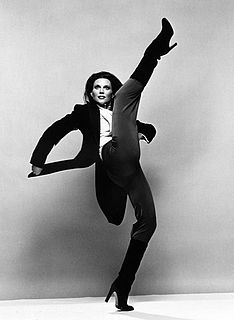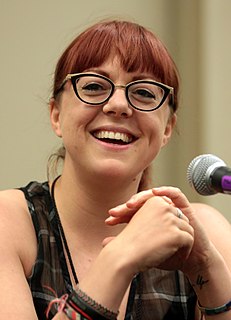A Quote by Gordon Quinn
What makes 'Hoop Dreams' such a powerful film, is that it carries a message that maybe we can do something about our problems in America, reflected in the resiliency and strength of those families that we portrayed. The film was where we really saw the characters that we care about, interwoven with a analysis that is trying to help the audience understand what is happening in these people's lives. And in what is happening, there is an understanding of the larger power relationships in the world.
Quote Topics
About
America
Analysis
Audience
Can Do Something
Care
Carries
Characters
Dreams
Families
Film
Happening
Help
Hoop
Interwoven
Larger
Lives
Makes
Maybe
Message
Our
People
Portrayed
Power
Power Relationships
Powerful
Problems
Really
Reflected
Relationships
Resiliency
Saw
Something
Strength
Those
Trying
Understand
Understanding
World
Related Quotes
'Hoop Dreams' brought us back to our roots in veríté filmmaking. What we saw in the powerful emotional scenes within it - at nearly three hours long and with no star power - was an outreach to a different and more important audiences. There were the similarly involved folks who saw it that were part of the struggle, but there was also a new audience that weren't empathetic or sympathetic to the people we were portraying. They would never watch a film about inner city families, but they watched 'Hoop Dreams.'
It makes it very easy. I have a beginning, middle, and end, and I don't film for long - about 20 hours usually for a two-hour film - so it's easily watchable in a week for me and the editor. Once I know who the characters are, I only film those characters, unless somebody else forces their way into the film by a scene happening to them or we meet them by chance.
What interests Sam Mendes are characters and relationships, and he was a genius at giving you the freedom to create the type of character you want, and also to explore and have fun with your fellow actors. For him, characters and relationships are really the heartbeat of the film, and then the action is the backdrop. By developing the characters, he makes you care that much more about the action and going on a journey with the characters.
I think that movies can help guide us through those experiences [the problems that are happening in our daily lives, the stresses between countries, the economy and global warming]. I think all art tries to grapple with, redefine, come to terms with, express what's happening now when it's working. You can be entertained, but you can also be stimulated to think about things.
I think that film festivals, we're very often given to understand, are about filmmakers and about films and about the industry of filmmaking. I don't believe that they are, I believe that film festivals are about film audiences, and about giving an audience the encouragement to feel really empowered and to stretch the elastic of their taste.
As a filmmaker, I believe in trying to make movies that invite the audience to be part of the film; in other words, there are some films where I'm just a spectator and am simply observing from the front seat. What I try to do is draw the audience into the film and have them participate in what's happening onscreen.
When we started Nowhere, maybe the fashion industry recognized something was happening, but they just thought, Oh, those kids . . . whatever. They didn't know what was actually going on with us. Now we are those people in a sense - the current establishment. So I hope there's something happening that is new and independent that we know nothing about.
You couple that with how I looked when I was younger, and growing up... The voice is not quite breaking. It's awful. No, I don't enjoy that at all. But that's one of the things people love and find so endearing about the Harry Potter series, and why they've lasted so long. Because people have grown up with us, and they care about the characters. They're not just some characters in the film, they're people you can relate to, and you care about, and you grew up with, and when they die in this film, people feel it!
You're in a movie, so you have to think about how something plays. It's not like you're thinking about how an audience is going to react. You're trying to present the story. You're trying to illuminate the lives of these people in the story. So I'm thinking about how my behavior as this character best illuminates what's going on with them in this moment in time. I always say it's sort of the director's job. People think that the directors direct actors. No. Really, what the director's doing is directing the audience's eye through the film.




































